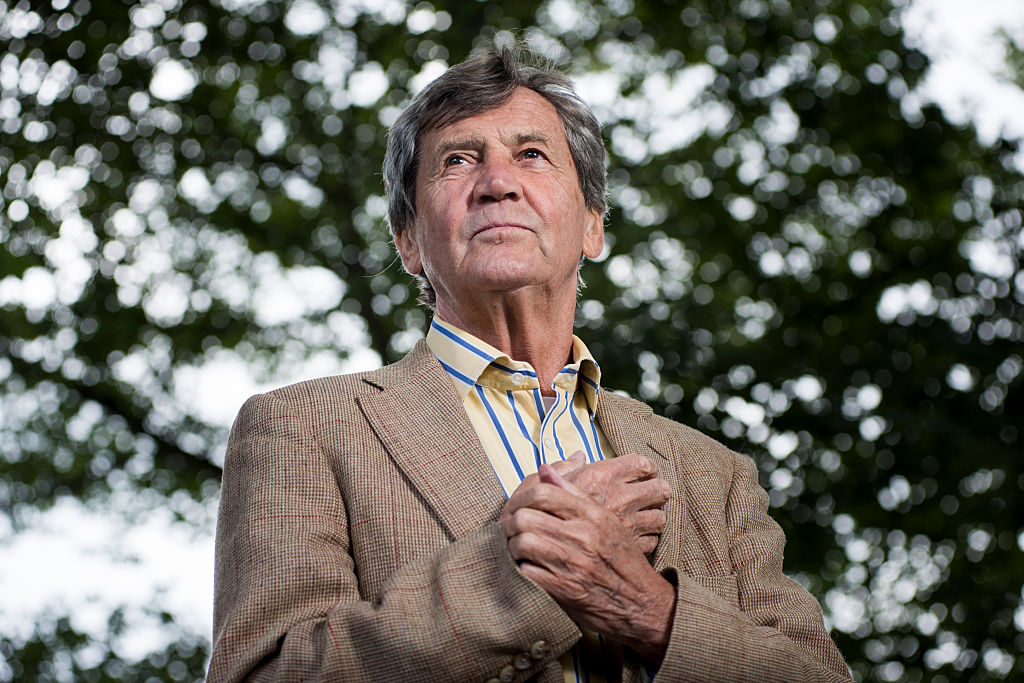‘Hello’. It’s strange to think that Melvyn Bragg has said that for the last time on In Our Time. That was how every show started – more than 1,000 of them. Each episode began with the minimal courtesy, and then we’re off: ‘Hello. In 61 AD, an east Anglian queen took on the might of the Roman empire and lost’.
All In Our Time listeners have wondered when this day would come. Bragg is 85, and with age, the episodes slowed slightly, and his voice had become slightly breathier. Bragg’s powerful mind did not wane, but his age always meant there was a time limit.
The brilliance of In Our Time has been said before, in many places. But it has to be said again, because the BBC needs to hear it. In Our Time succeeded because it did not chase ‘relevance’. In Our Time succeeded because it respected its listeners’ intelligence. In Our Time succeeded because it believed in a simple idea: that it’s better to know things than not to know things.
Like most things good that the BBC does, it was an accident. Bragg was presenting Start the Week in the 1990s, and was shuffled off to the 9am Thursday ‘death slot’ for an ill-defined show when he became a Labour peer. There were concerns about impartiality after his Blair-given peerage. No matter. If Bragg was meant to remain aloof regarding the world of politics, it meant that he could scratch that argumentative itch with fierce fights about the more important stuff: science, art, literature, philosophy, religion, sort of anything. His contempt for waffle – ‘no, you still haven’t quite explained what the primordial soup was made of’ – has been well celebrated.
Just as captivating are the moments where he lost it, most notably on an episode about the Industrial Revolution. When confronted with a voguish modern historian who said British inventors didn’t have a consequential role in the Revolution, Bragg exploded. He thumped his hand on the table, kind of squashing all respect he may have had for modern historians as he did so, and he roared… OK, maybe he was taking it a bit too far, but there will have been plenty of listeners doing the same.
Still, I don’t know anyone that thought Bragg did a bad job. The scepticism of jargon was universal, the treatment of academics fair in its targeting at all political persuasions and historical inclinations. The Rest is History is very popular now, and it’s an excellent podcast to have on while doing the dishes: for enough knowledge, historical enthusiasm, matey banter, etc. To understand something, though, there’s no substitute for the rigour and effort that goes into In Our Time.
I’m an In Our Time obsessive, who has been listening through all the episodes in order for several years now. I associate some episodes with weird memories: ‘Neuroscience in the 20th Century’ with a five-hour south London walk, ‘The Aztecs’ on a beach in Malta, ‘The Lunar Society’ while on the way to the Israel-Lebanon border. The earlier shows of the late 1990s – before the show narrowed down its topics – contain some rare gems: Gore Vidal and Alan Clark on ‘Politics in the 20th Century’; Will Self vs Roger Scruton on ‘Modern Culture’; Christopher Hitchens and Susan Sontag on ‘The American Ideal’.
Bragg has also been a delight in some interactions I’ve had with him. For my 18th birthday, two friends wrote to him, and he sent me a hand-written birthday postcard, which I still have. Three years later, when I commissioned him for our Spectator Christmas poll, he filed an entry on Just William. He said he wasn’t feeling too well, and apologised for the standard. It was obviously still better-written than most of the others, but before we ran it, he re-filed. He said he was writing from a bench on Hampstead Heath after a Lemsip and a malt whisky, on a dark winter night. I found the image peculiarly moving.
The show shouldn’t be canned, because that amounts to giving up
Some people have called for the BBC to axe In Our Time now that Bragg’s gone. It’s certainly terrifying to countenance a post-Bragg show: Ed West wrote that ‘I lie awake at night fretting about what complete ninny the BBC will put in his place’.
Yet the show shouldn’t be canned, because that amounts to giving up. Bragg has been singular and brilliant, and is irreplaceable. But there are still more topics to cover, and the BBC must fight to keep unashamedly intellectual, ambitious, perhaps even inaccessible broadcasting in prime slots. There will be the usual ‘Amol Rajan’ jokes – whisper it, he’d be alright – but save us from someone who thinks all historical opinions are valid. Incidentally, and although he’d hate to read this, anyone that’s listened to our Book Club podcast knows Sam Leith would be a good choice.
In Our Time started in 1998. After four years of listening, I’m only at the 2005 shows. As the show has kept going, my list of episodes to listen to has got longer. It’s bittersweet to think there might be a full stop, but I don’t welcome the task getting any easier.








Comments